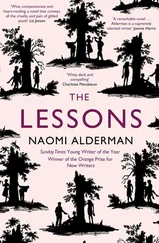P. Alderman - Haunting Jordan
Здесь есть возможность читать онлайн «P. Alderman - Haunting Jordan» весь текст электронной книги совершенно бесплатно (целиком полную версию без сокращений). В некоторых случаях можно слушать аудио, скачать через торрент в формате fb2 и присутствует краткое содержание. Год выпуска: 2009, ISBN: 2009, Издательство: Random House Publishing Group, Жанр: Старинная литература, на английском языке. Описание произведения, (предисловие) а так же отзывы посетителей доступны на портале библиотеки ЛибКат.
- Название:Haunting Jordan
- Автор:
- Издательство:Random House Publishing Group
- Жанр:
- Год:2009
- ISBN:9780553906929
- Рейтинг книги:3 / 5. Голосов: 1
-
Избранное:Добавить в избранное
- Отзывы:
-
Ваша оценка:
- 60
- 1
- 2
- 3
- 4
- 5
Haunting Jordan: краткое содержание, описание и аннотация
Предлагаем к чтению аннотацию, описание, краткое содержание или предисловие (зависит от того, что написал сам автор книги «Haunting Jordan»). Если вы не нашли необходимую информацию о книге — напишите в комментариях, мы постараемся отыскать её.
Haunting Jordan — читать онлайн бесплатно полную книгу (весь текст) целиком
Ниже представлен текст книги, разбитый по страницам. Система сохранения места последней прочитанной страницы, позволяет с удобством читать онлайн бесплатно книгу «Haunting Jordan», без необходимости каждый раз заново искать на чём Вы остановились. Поставьте закладку, и сможете в любой момент перейти на страницу, на которой закончили чтение.
Интервал:
Закладка:
“I trust I don’t have to tell you to never let your girls go out without a chaperone—even in your immediate neighborhood,” Mona said. “Even respectable business establishments in your neighborhood have been targeted.”
“No, I’m insistent that the girls are always accompanied by an adult.”
“Good. I’ll talk to Seavey about storing supplies in the tunnels after I distribute these.” She took the blankets. “I don’t want you wandering down to that end of the street.”
“Nonsense—”
“No.” Mona was adamant. “You listen to me. You and the girls have been in far greater danger than you realize. Seavey’s utterly ruthless. And those two thugs he has with him? You don’t want to know what they’ve done to the girls they’ve gotten hold of.” Her expression softened. “Look, you helped us last night, and we’re grateful. But don’t be a fool—you have no experience with men like Seavey. Take water to the injured, if you feel you must—you’re safe enough on the beach. But stay away from the tunnels.”
Hattie wanted to protest, to point out that as owner of a shipping business, she would eventually have to cope with the dangers of the waterfront. That as the daughter of parents who had regularly ventured into the slums of Boston to provide medical care, she knew a thing or two about what she might encounter. But she’d gone cold at the image of Charlotte and Tabitha in the hands of Seavey’s thugs.
Mona was right—she didn’t have any experience with men like Seavey. Or with running a waterfront business. She didn’t just feel like an interloper—she felt completely out of her element.
A fact Clive Johnson relished in reminding her of daily.
* * *
ONCE she’d filled a bucket from the well and hunted through the piles of merchandise from the general store for a cup, she carried both across the street. As the fire had burned lower, people had started small bonfires along the beach for warmth and were now huddled around them, their hands spread over the flames. She spied Mona moving from one group to the next, distributing the blankets.
People huddled under blankets, their faces lined with the strain of their ordeal. Conversation trailed off to tense silence whenever Hattie approached, but she persisted, knowing they needed the water she offered. Some refused outright, but others accepted the cup, their eyes remaining wary as they drank.
The workman who had tended to the prostitute she’d pulled from the fire stopped to help her hold the head of a burn victim so that she could trickle water into his mouth. “I’m Frank,” he said as he gently lowered the man back to the ground with large, capable hands. “And you are?”
“Hattie,” she replied softly. Under the circumstances, it didn’t seem right to insist he address her formally. She noted the care with which he tucked a blanket around the man.
“Well, Hattie, it’s a good deed you’ve done tonight,” he said, leaning back on his heels and smiling tiredly. “Though folks are acting wary, they won’t forget that one of you from the hilltop area came down here.”
She shrugged. “More should have been willing to help. ‘The good we secure for ourselves is precarious and uncertain until it is secured for all of us. …’”
“Jane Addams,” he said, nodding. “Apt.”
“You know of her work?” Hattie was surprised.
His expression turned wry. “Just because I don’t live on the hill doesn’t mean I don’t stay abreast of social reform. Hull House has been an exceptionally successful settlement house for the unfortunate back East.”
“Yes, of course,” Hattie said quickly, embarrassed that she’d allowed herself to be misled by his appearance into thinking he was uninformed. Indeed, she should have immediately noticed his intelligent eyes and educated speech patterns. Yet given his muscular build and work clothes, he certainly didn’t fit the mold of a refined man of letters who spent his days reading in the library.
“We need to move the injured to the Green Light,” she said. “Do you know of any men who can help transport the ones who can’t walk on their own?”
He nodded, waving over several who stood close by. After explaining the situation, he quickly had a system set up whereby he and Hattie would give the victims water and check their condition, then indicate who should be moved.
She followed him down the beach to kneel by the next victim. “Are you a doctor?” she asked, finding herself more curious about him than polite society dictated she should be.
Frank shot her a look of disbelief. “Hardly. It’s rare that we can get a doctor to treat anyone down here. We’ve learned to rely on ourselves.”
“But you’re from back East? Your accent …” His voice, though rough in timbre, bore the unmistakable broad vowels of New York or perhaps New Jersey.
“You’ve a good ear.” He checked the victim’s bandaged hands, then told the man that he would hold the cup for him. “I hail from New York City—I’m a union man,” he explained.
“Oh.”
Charles had spoken disparagingly of the local union movement, claiming a small group of men had set up their own shipping office and were challenging the shipping masters, demanding outrageous wages and special treatment for union sailors. She’d refrained from arguing with him, even if it had gone against what she’d been raised to believe about the rights of workers. As it was, she and Charles had had enough contentiousness in their marriage.
Also strengthening her decision to remain silent, however, had been the recent newspaper accounts of violent clashes between the union representatives and the shipping masters. The latest had occurred when union members had thrown rocks at a boardinghouse that was supposedly run by a shanghaier. Eleanor had written numerous editorials openly condemning the union’s condoning of such violence.
Frank glanced up. “Don’t believe the mistruths you read in the local newspaper editorials,” he warned, uncannily reading her mind. “I was shanghaied off the New York docks, so I have firsthand knowledge of how sailors are treated.”
“My husband was a shipping master as well as a ship’s captain,” Hattie informed him coolly.
“I’m sorry,” he said, catching her use of past tense. “I’m sure he wasn’t happy about the formation of the union, since it meant money out of his pocket. But it’s necessary.”
“Charles always claimed that if he had supported the union, he would have lost his contracts to provide crews to the ships’ captains, as well as any chance he had of finding crews for his own ships.”
“I’m not surprised. Most of your social acquaintances, with few exceptions, look the other way, unofficially sanctioning the shanghaiers’ brutal methods.”
Hattie bristled. “Failing to support the union doesn’t necessarily mean that Charles and his business associates supported the shanghaiers. Charles always said that it’s the union that isn’t doing the sailors any favors.”
“I’m sure that’s what your husband wanted you to believe.” Frank took the cup from her and crouched to hold it to a woman’s lips, softly urging her to drink. “But someone has to stand up to such a corrupt system. If unchecked, the already brutal treatment of sailors will only get worse.”
“But you would say that, wouldn’t you?” she argued, increasingly upset yet not really understanding why. “To salve your conscience when you resort to violence.”
Her comment appeared to amuse him. “What’s the matter, Hattie? Are you not as open-minded as you thought? Does it bother you to see an educated man fight for the rights of sailors?”
“Of course not! My family had a long history of philanthropy in Boston.”
Читать дальшеИнтервал:
Закладка:
Похожие книги на «Haunting Jordan»
Представляем Вашему вниманию похожие книги на «Haunting Jordan» списком для выбора. Мы отобрали схожую по названию и смыслу литературу в надежде предоставить читателям больше вариантов отыскать новые, интересные, ещё непрочитанные произведения.
Обсуждение, отзывы о книге «Haunting Jordan» и просто собственные мнения читателей. Оставьте ваши комментарии, напишите, что Вы думаете о произведении, его смысле или главных героях. Укажите что конкретно понравилось, а что нет, и почему Вы так считаете.












